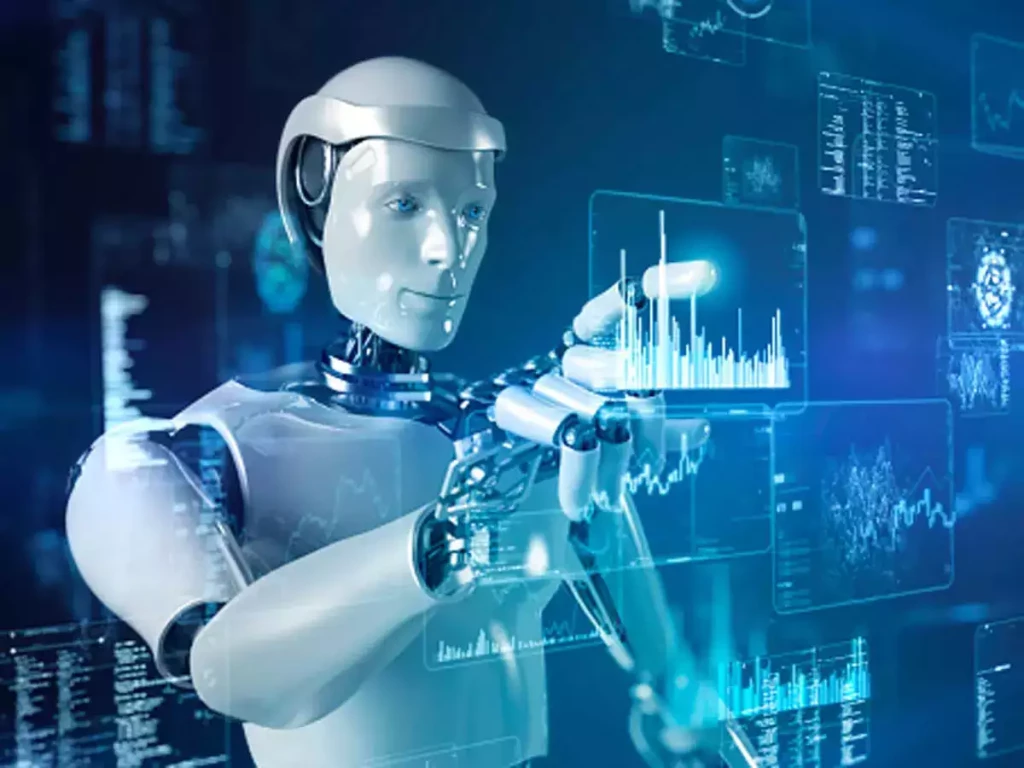
Revolutionizing Construction: Dubai's Pioneering Use of AI Robots for Building Material Testing
In a groundbreaking move, Dubai has begun employing AI robots for testing building materials, setting a new standard in the construction industry. This innovative approach not only streamlines the testing process but also enhances accuracy and efficiency, further cementing Dubai’s position as a pioneer in technological advancement. Let’s explore benefits of this revolutionary integration of AI and robotics in construction.
The Emergence of AI in Construction
Dubai’s construction sector has always been at the forefront of embracing cutting-edge technologies. The introduction of AI robots for material testing is a testament to this ongoing commitment. These robots, equipped with advanced AI algorithms, can analyze and test building materials more quickly and accurately than traditional methods.
Enhanced Accuracy and Efficiency
One of the primary advantages of using AI robots is the significant improvement in accuracy and efficiency. Traditional material testing methods are often time-consuming and prone to human error. AI robots minimize these issues, delivering precise and reliable results at a much faster rate. This advancement is crucial in a city like Dubai, where construction projects are often large-scale and time-sensitive. Must explore: The Launch of SLS Residence in Palm Jumeirah in 2026
Cost-Effectiveness and Safety
The use of AI in material testing also offers cost benefits. By automating the process, the need for extensive manual labor is reduced, which in turn lowers the overall cost of construction projects. Additionally, employing robots for hazardous testing tasks increases safety on construction sites, protecting human workers from potential harm.
Sustainability and Environmental Impact
Another significant aspect of AI robots in material testing is their contribution to sustainability. These robots can more accurately assess the environmental impact of materials, ensuring compliance with green building standards. This feature is particularly important in Dubai, which increasingly focuses on sustainable development.
Data-Driven Decision Making
AI robots generate vast amounts of data during material testing. This data can be analyzed to make informed decisions about material selection, construction methods, and project management. Such data-driven approaches can lead to building design and construction innovations, further advancing the industry.
Training and Workforce Implications
The integration of AI in construction also has implications for the workforce. There is a growing need for skilled professionals who can operate and maintain these sophisticated machines. This shift is creating new job opportunities in the field of AI and robotics, while also requiring existing construction professionals to adapt and upskill.
Challenges and Solutions
While the benefits are significant, adopting AI robots in construction also presents challenges. These include the high initial cost of implementing such technology, the need for technical expertise, and potential resistance to change within the industry. Continuous investment in technology, training, and awareness programs is necessary to address these challenges. Also read: Why Pakistani Consider Dubai Real Estate As the Premier Investment
Global Influence and Future Prospects
Dubai’s pioneering use of AI robots in construction will likely influence other cities and countries. As these technologies become more prevalent, they have the potential to redefine standard practices in the construction industry globally. Looking forward, we can expect further advancements in AI and robotics, leading to even more efficient, safe, and sustainable construction processes.
Revolutionizing Quality Control and Compliance Standards
Integrating AI robots for building material testing in Dubai marks a revolutionary step in enhancing quality control and compliance standards in construction. These AI-driven robots bring an unprecedented level of precision in testing materials like concrete, steel, and composites, ensuring that they meet the stringent safety and quality standards required in Dubai's ambitious construction projects.
This technological advancement is particularly crucial in a city known for its iconic structures and skyscrapers, where the integrity of building materials is paramount. The AI robots can conduct a range of tests, from stress and strain analysis to environmental impact assessments, with greater speed and accuracy than traditional methods. This not only assures the structural integrity and longevity of the buildings but also significantly reduces the risk of construction flaws and failures.
Moreover, the data these robots collect during testing is invaluable for regulatory bodies. It provides a comprehensive and accurate record of the materials' quality, ensuring adherence to local and international construction standards. This data-driven approach also aids in continuously improving building regulations and practices, contributing to safer and more reliable construction in Dubai and potentially setting new benchmarks for the global construction industry.
Conclusion
The employment of AI robots for building material testing in Dubai is a significant leap forward in the construction industry. It exemplifies the city’s commitment to innovation, efficiency, and sustainability. This move enhances the quality and speed of construction projects and sets a new benchmark for the global construction industry. As Dubai continues to embrace and integrate advanced technologies, it paves the way for a future where AI and robotics are integral to building the cities of tomorrow.






